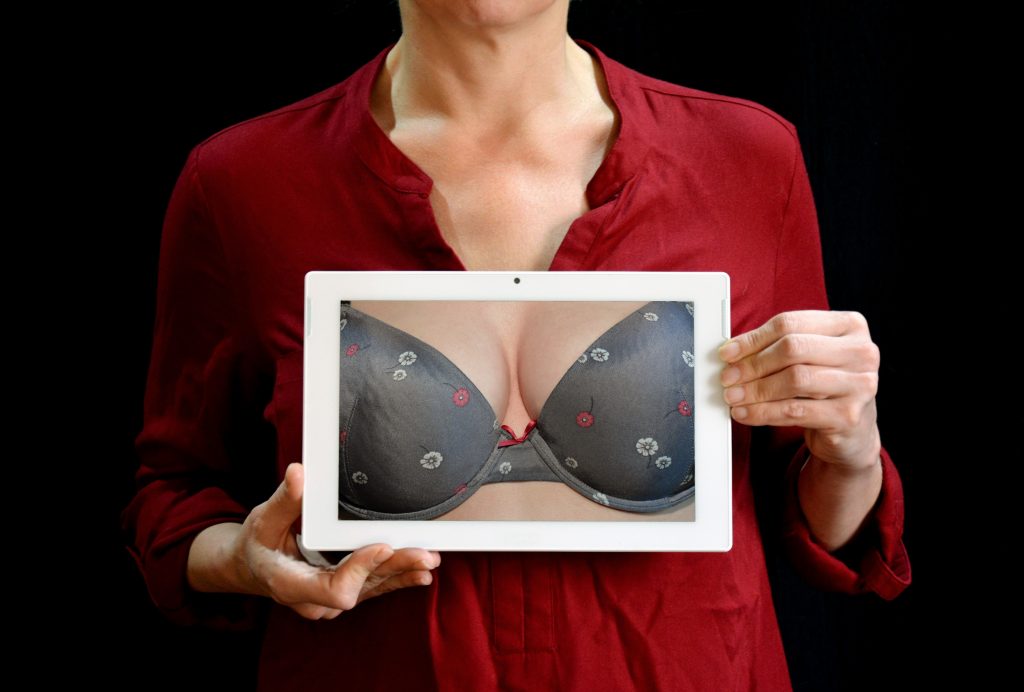Breast pain is a common symptom which affects about two thirds of women, most commonly in the 30’s and 40’s and in perimenopause and premenopause, but rarely postmenopausal women can develop this. You might feel a dull aching pain, a heaviness, a tightness, a discomfort or a burning sensation in your breasts which can affect one side or both. It can cause a lot of anxiety. At Rowena Health Menopause Clinic we often see women suffering with breast pain as part of the hormonal changes that can occur in perimenopause, or due to side effects to the hormones they take as HRT.
What causes breast pain?
Breast pain can be cyclical, that is with your monthly cycle. It can be caused in perimenopause by the fluctuations of hormones oestrogen and progesterone. It is one of the side effects of taking Hormone Replacement Therapy (HRT), although it often settles within 3 months, and tends to be better if the hormones are started slowly and weaned up. It can be a side effect of using the combined contraceptive pill or progestogen only methods of contraception like the progestogen only pill, implant or depo injection. Pain in the breasts can be non-cyclic, that is and it doesn’t vary with your hormonal changes. It could be due to an injury or infection or maybe a breast cyst, or could be after breast surgery. Sometimes pain can spread to the breast from a location outside the breast like the heart, the lung, the oesophagus, the gall bladder or the chest wall, as in costochondritis.
What to do if you have breast pain
The first step is to examine your breasts. Try and think how often you get the pain, what it’s like and how long it lasts. Is it linked to your period?
The first step is to have a check up to rule out anything serious. Often breast pain resolves on it’s own in 3-6 months, but this doesn’t always happen, and sometimes medication is needed to help. Using a supportive bra, maybe a sports bra can give great relief and 60-70% of women report relief from the pain by having good bra support. Using a hot and cold compress on the breasts, especially at night before sleep can help. Actually changing your diet might help, reducing tea and coffee, chocolate, fizzy drinks and increasing fibre in the diet and having a low fat diet. Exercising can help, as can relaxation, acupuncture and relaxation. Pain relief can help, using over the counter pain killers if you are able to, like paracetamol and ibuprofen, you can try rubbing on NSAID’s.
What about Oil of Evening Primrose Oil or Vitamin E?
Vitamin E, as an antioxidant may help ease breast pain, you can try using 200iu of Vitamin E twice a day with Oil of Evening Primrose and if you don’t find it’s helpful after 4-6 months then stop it.
Evening Primrose seeds are rich in omega-6 essential fatty acids, including linoelic acid and gamma-linolenic acid (GLA). Women with breast pain are reported to have low levels of GLA and it’s metabolite. You need to take a dose of 1000-3000mg per day, and it’s best to take them with a meal. It is not advised to take these if you are trying to become pregnant, have epilepsy or are on blood thinners, check with your Dr first please. Taking Oil of Evening Primrose can cause some side effects like abdominal pain, indigestion, nausea, softer stools and headaches. You need to take them for 6 months to get full benefit, you can then either stop or carry on with a lower dose. Trials looking at using this in comparison to placebo, Vitamin E, NSAIDS or Danazol showed no difference but some women do try this and they feel better.
If pain is persisting and affecting your quality of life, then hormone drugs such as Danazol or Tamoxifen can be used by breast specialists.
Breast pain and cancer
Having breast pain doesn’t increase the risk of breast cancer. Breast pain alone is not usually a sign of breast cancer and is much more likely to be either a benign breast condition or chest wall pain due to other factors.
Red flags for your breasts
- A lump in your breast or under your arm (a single lump or more)
- Discharge form the nipple or lump (if any)
- Swelling and/or redness of your breast
- Changes to the size or shape of your breast
If you have breast pain and isn’t settling do get a check up.
Talk to us, at Rowena Health, if breast pain is affecting you in perimenopause and menopause, we can help guide you with this and may need to adjust your menopause treatment. To book an appointment at Rowena Health Menopause Specialist Clinic online, if you are in the UK, or in our Guildford clinic please click on the link.



Thanks for spreading awareness on yet another misunderstood peri/menopause symptom/HRT! Would love to chat further about this (see http://www.posturefittingphysio.com). Always in support, Siobhán 👙💃🏼💃🏿👙
Thank you so much for your lovely comment.It would be lovely to chat about this.